Indigenous Governance Database
Honoring Nations Reports
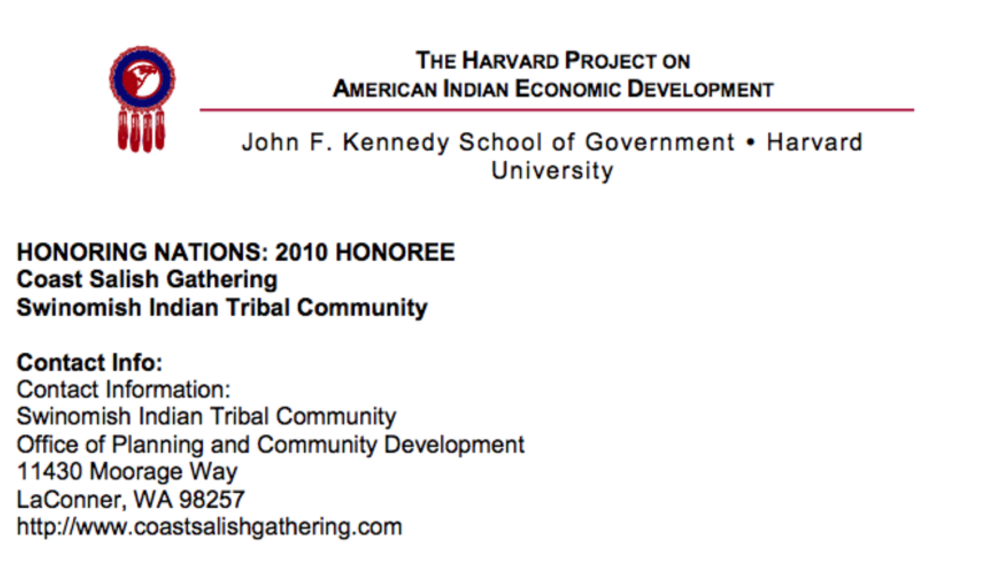
Coast Salish Gathering
Ecosystems in many parts of North America are under severe stress. Pollution, the overuse of natural resources, and habitat destruction threaten local flora and fauna. Conservation attempts often fall short because they target one species of site within an ecosystem. The Coast Salish Gathering…
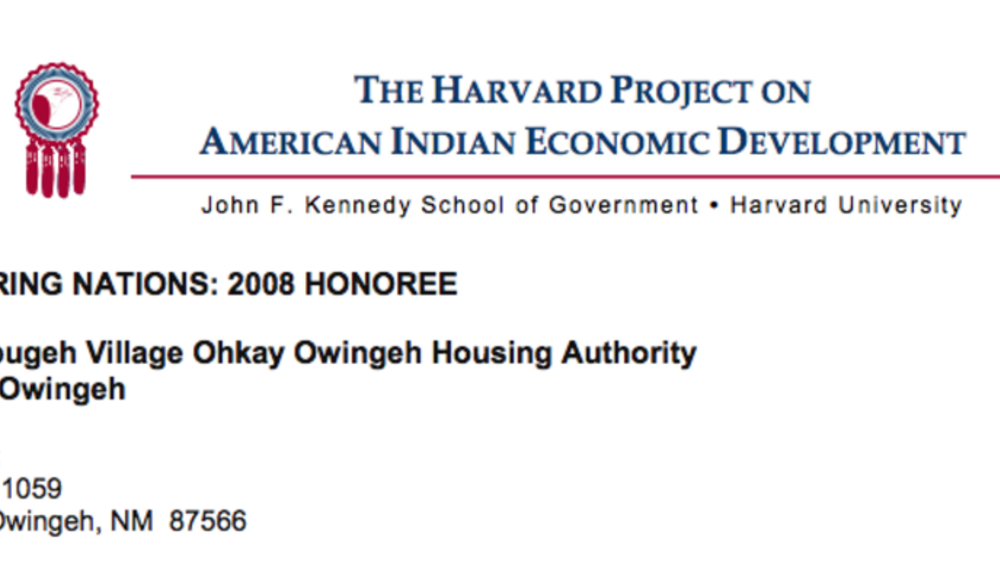
Tsigo bugeh Village (Ohkay Owingeh Pueblo)
Restoring communal living through Pueblo-style housing, the Tsigo bugeh Village offers "traditional living with a modern touch" for Ohkay Owingeh citizens. Designed to honor a sense of community and place, Tsigo bugeh addresses Ohkay Owingeh’s urgent housing demands with 40 units for single and…
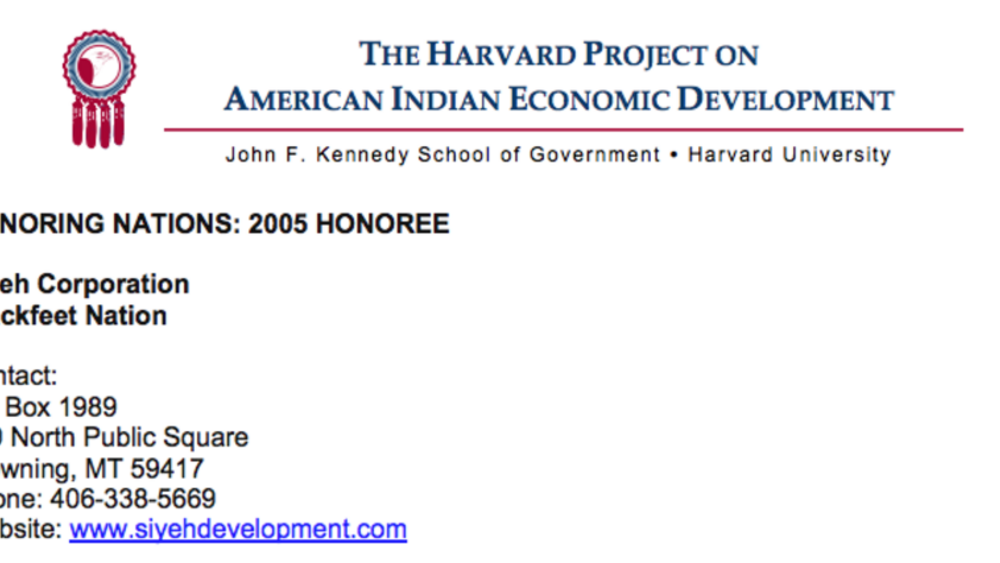
Blackfeet Nation's Siyeh Corporation
For years the Blackfeet Nation struggled to create sustainable tribal enterprises that could produce revenue for the nation and meet the needs of its citizens for jobs and services. Many of these efforts did not succeed because of conflicts within the tribal government. In 1999, the Nation tried a…
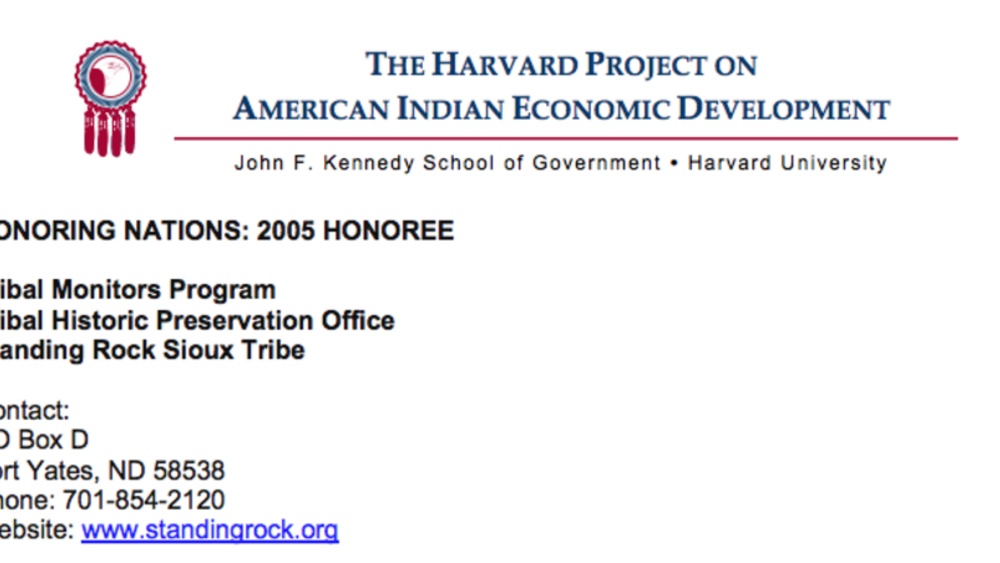
Standing Rock Sioux Tribal Monitors Program
The Standing Rock Sioux Tribe is located on 2.3 million acres of land in the central regions of North and South Dakota. Land issues rose to the forefront of tribal concerns after events such as allotment, lands flooding after the Army Corps of Engineers built a series of dams adjacent to the Tribe…
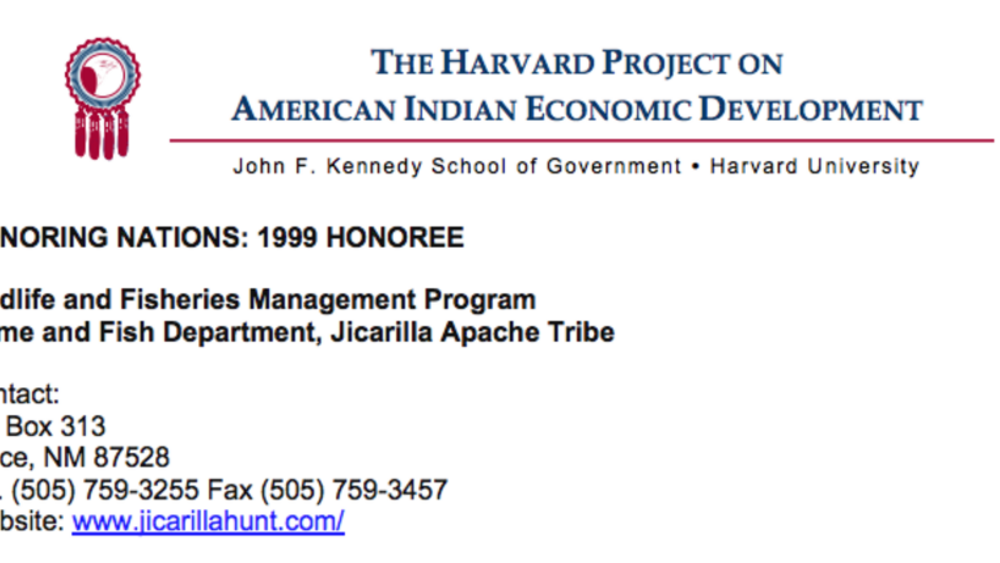
Jicarilla Apache's Wildlife and Fisheries Management Program
Recognized by state game and fish agencies as being one of the best of its kind, JGFD’s program includes a game and fish code and a wildlife management fund for habitat enhancement projects. The program restored the reservation’s mule deer population and trophy trout, and established a commercial…
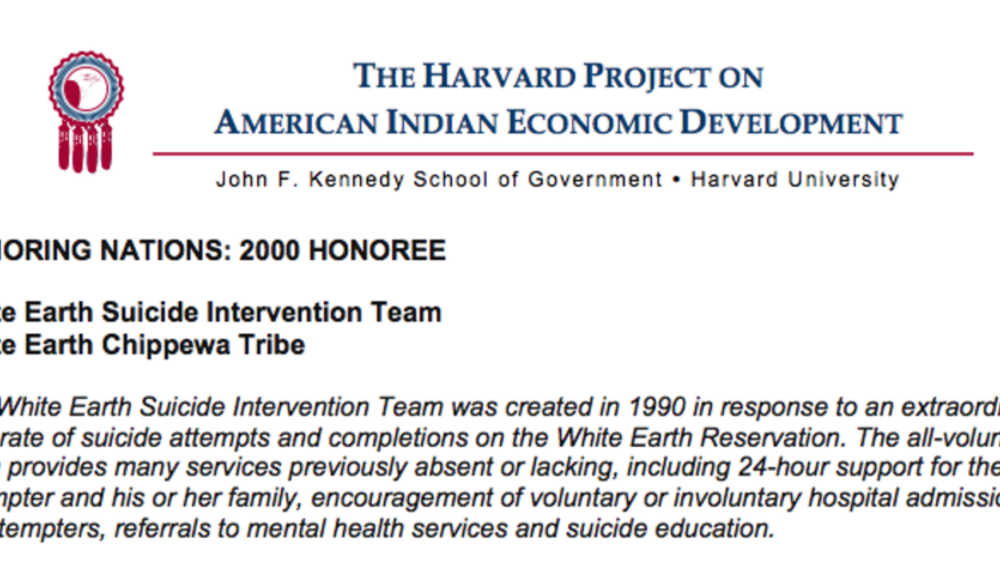
White Earth Suicide Intervention Team
The White Earth Suicide Intervention Team (WESIT) was created in 1990 in response to an extraordinarily high rate of suicide attempts and completions among tribal members living on the White Earth Reservation. With the Tribal Council’s official support, a group of volunteers came together following…
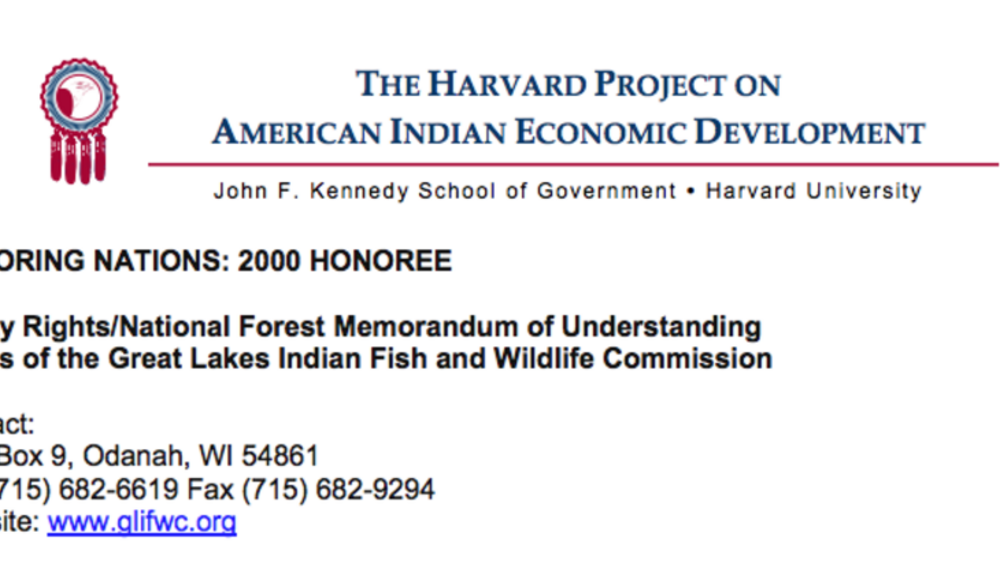
Great Lakes Indian Fish and Wildlife Commission's Treaty Rights/National Forest MOU
The Great Lakes Indian Fish and Wildlife Commission (GLIFWC), a tribally chartered intertribal agency, negotiated a memorandum of understanding (MOU) with the US Forest Service that both recognizes and implements treaty-guaranteed hunting, fishing, and gathering rights under tribal regulations and…
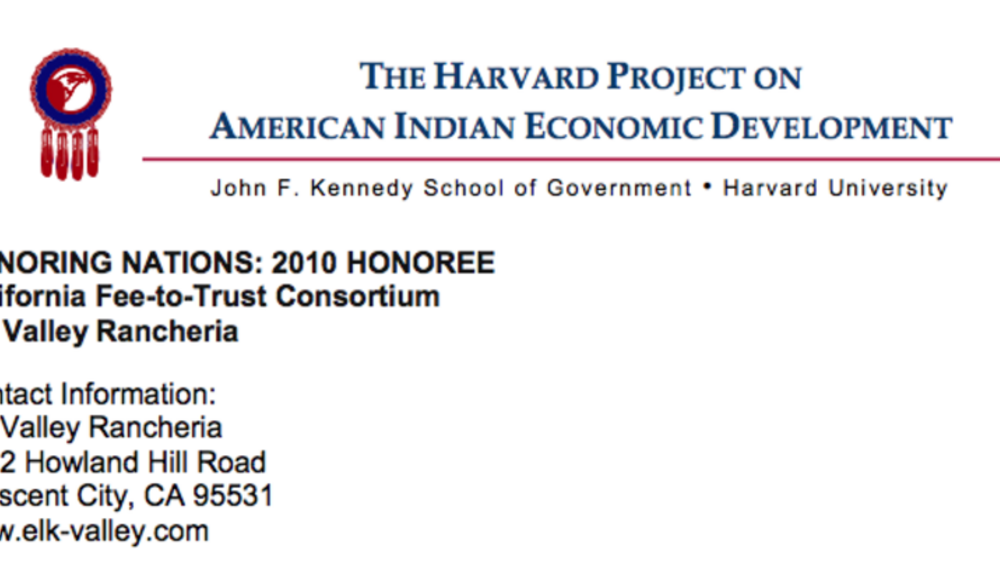
California Fee-to-Trust Consortium
The loss of traditional land is a source of longstanding trauma for Native nations. It has far reaching consequences that began at the time of dispossession and persist today. Many tribes struggle to regain territory in order to support the basic needs of their citizens – housing, economic…
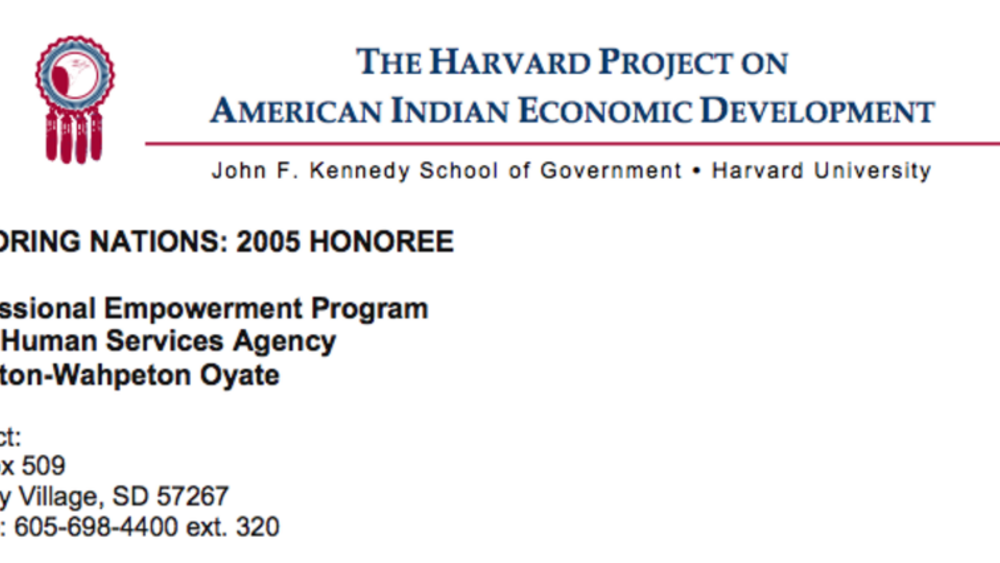
Sisseton Wahpeton Oyate Professional Empowerment Program
Across Indian Country, programs and businesses depend on skilled, committed, and responsible workers. However, some Indian citizens on reservations have limited experience in the workplace; little education; and face problems finding day care, adequate transportation, and other necessities.…
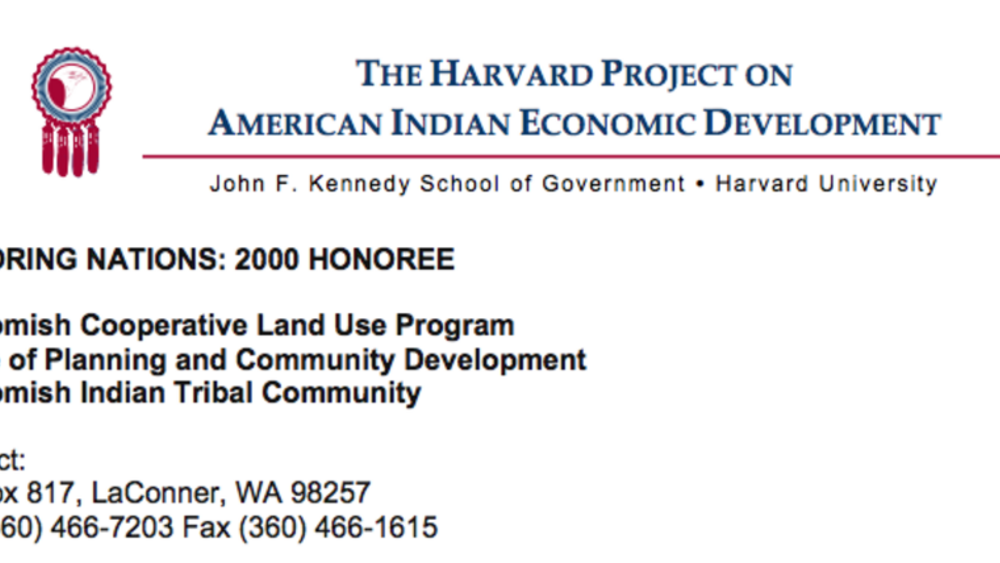
Swinomish Cooperative Land Use Program
Based on a memorandum of agreement between the Tribe and Skagit County, the Swinomish Cooperative Land Use Program provides a framework for conducting permitting activities within the boundaries of the "checkerboarded" reservation and offers a forum for resolving potential conflicts. The process,…
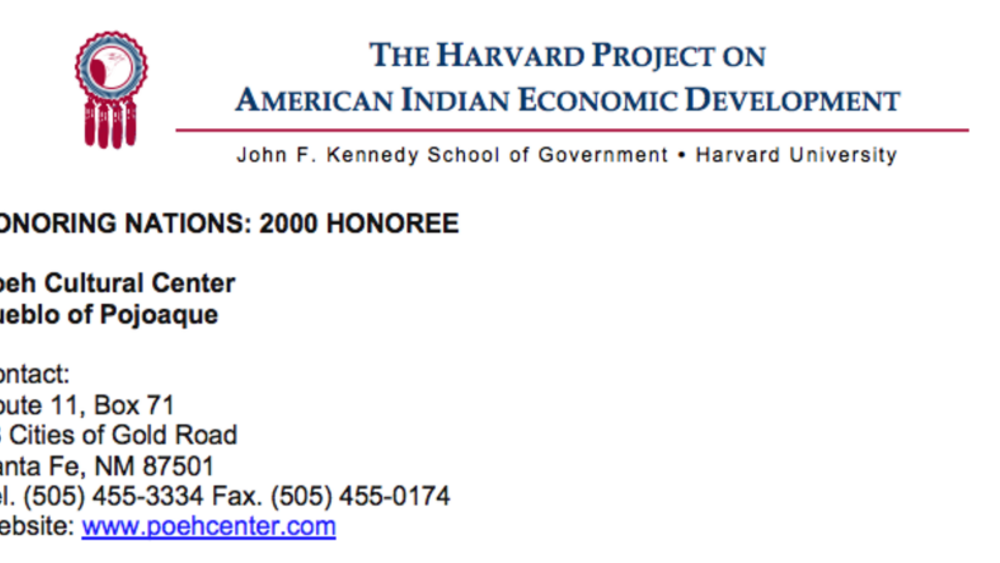
Poeh Center: Sustaining and Constructing Legacies (Pojoaque Pueblo)
Faced with the common challenge of raising funds for construction of a cultural center and museum, the Tribal Council created the Pojoaque Pueblo Construction Services Corporation in 1993. The Corporation’s chartering mandate was to generate revenues for cultural activities and to oversee the…
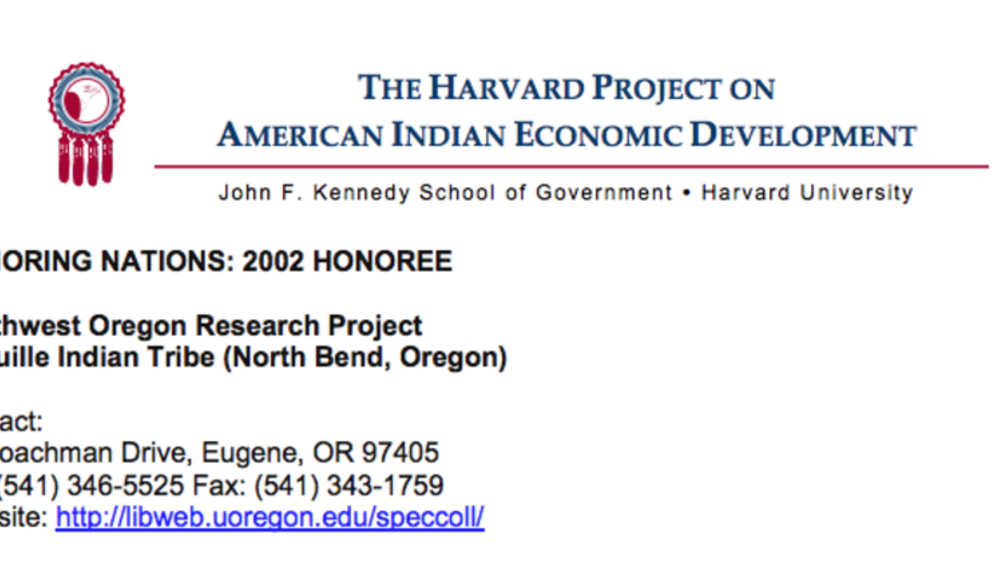
Coquille: Southwest Oregon Research Project (SWORP)
Driven by the belief that possessing historical documents and archival collections is essential for cultural self-determination, the Coquille Indian Tribe partnered with the University of Oregon and the Smithsonian Institution to launch the Southwest Oregon Research Project (SWORP) in 1995. Through…
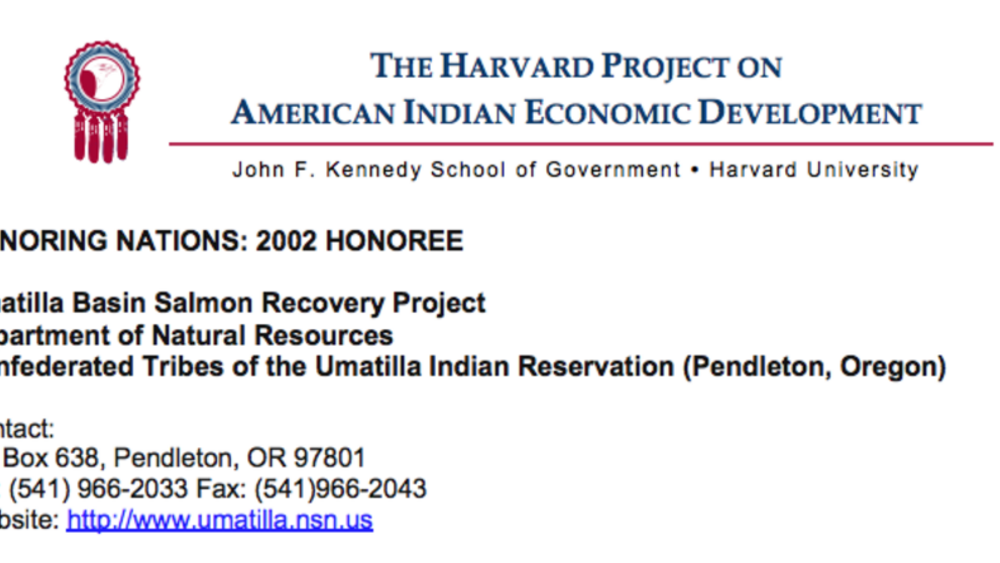
Umatilla Basin Salmon Recovery Project
The Umatilla Basin Salmon Recovery Project has successfully restored salmon to the Umatilla River, where they had been absent for nearly 70 years, while also protecting the local irrigated agriculture economy. Partnering with local irrigators and community leaders, the tribe undertook a…
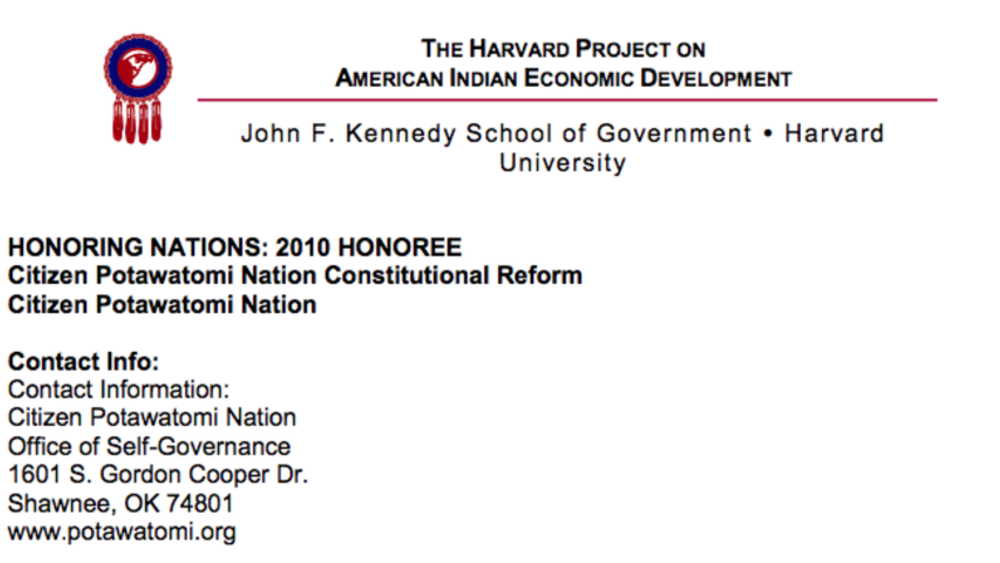
Citizen Potawatomi Nation Constitutional Reform
Tribal governments across the United States work tirelessly to provide their citizens with effective systems of governance. After years of failed assimilation attempts, the federal government imposed blanket political systems upon almost all tribes regardless of those systems’ effectiveness or…
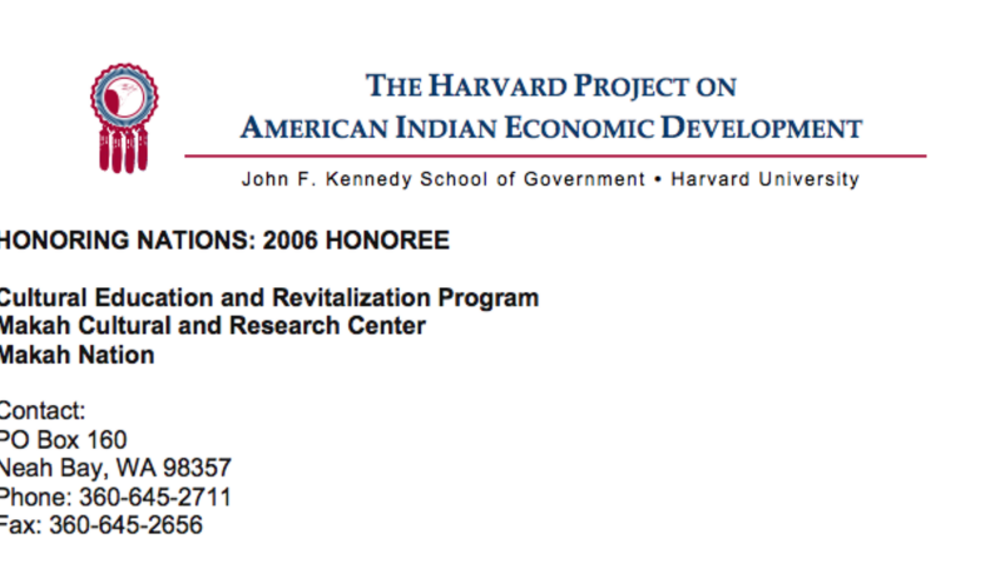
Makah Cultural Education and Revitalization Program
The Cultural Education and Revitalization Program serves as the hub of the community and stewards of a world class museum collection. Keen efforts and awareness demonstrated by staff and community members make this Center unique. Programs are truly guided by the needs of the Nation and its citizens…
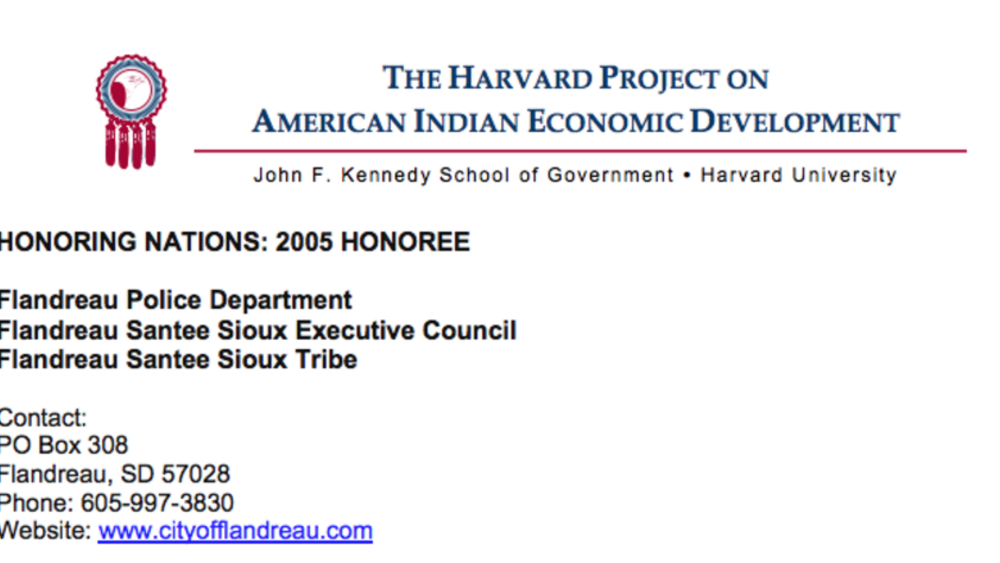
Flandreau Police Department
The Flandreau Santee Sioux Tribe’s lands are situated within Moody County and the City of Flandreau, South Dakota. This location presents the Nation with a particular challenge: How do you provide adequate and culturally sensitive public safety and law enforcement for your citizens in mixed…
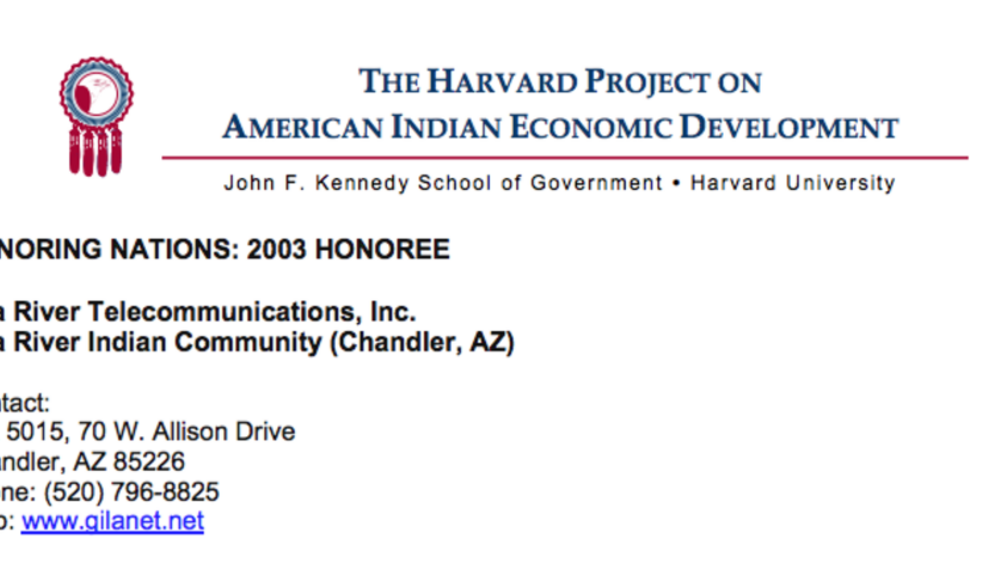
Gila River Telecommunications, Inc.
Recognizing the need for affordable and reliable telecommunications services, the Tribe founded Gila River Telecommunications, Inc. (GRTI) in 1988. A pioneer in telecommunications in Indian Country, GRTI offers affordable landline phone service, dial-up and DSL Internet service, and satellite…
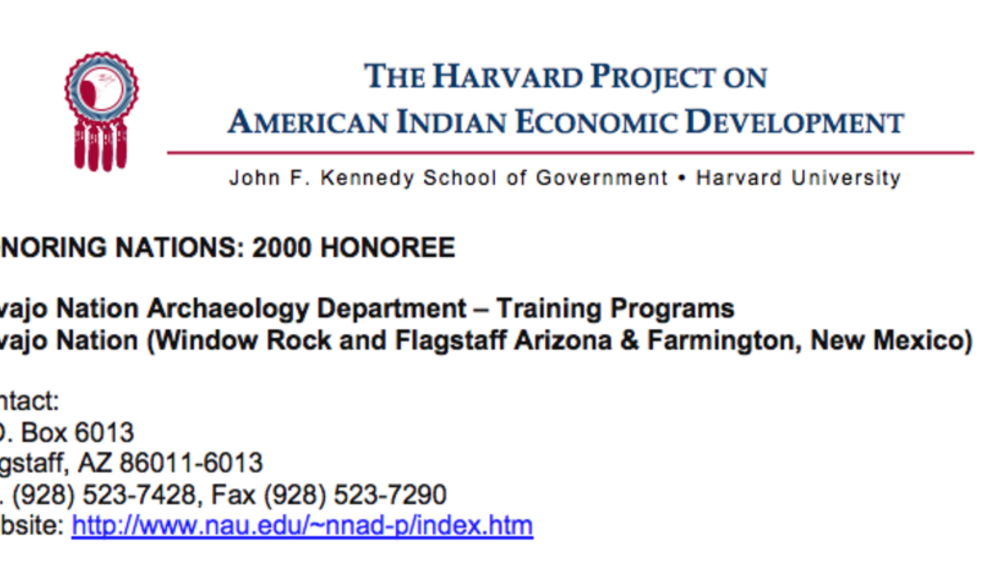
Navajo Nation Archaeology Department Training Programs
The Navajo Nation Archaeology Department was created in 1977 to facilitate historic preservation on Navajo Nation lands as mandated by both US and tribal government legislation. In 1988 and again in 1993, the Department expanded to include training programs, undertaken in partnership with Northern…
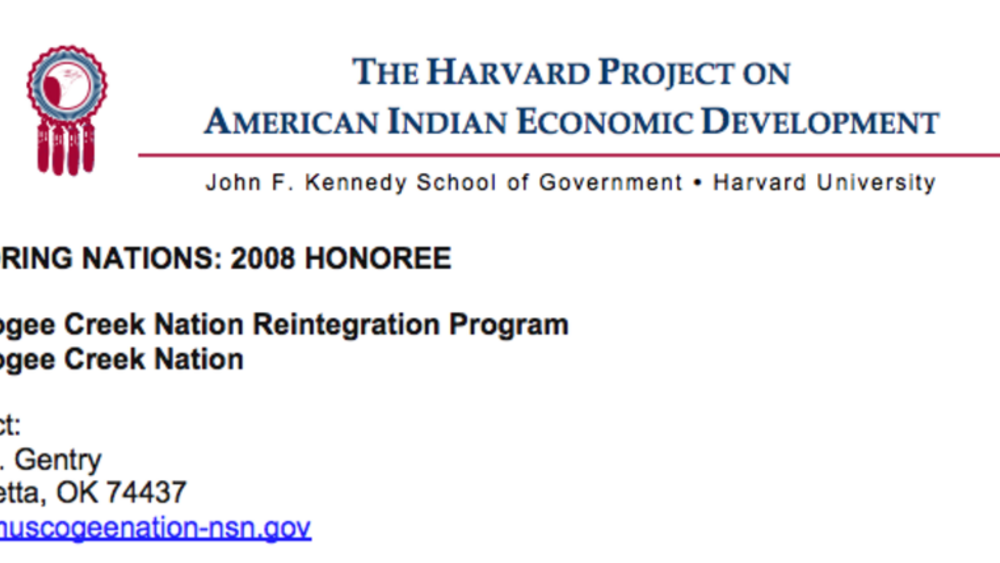
Muscogee Creek Nation Reintegration Program
Although the state of Oklahoma has one of the largest prison systems in the US, it provides released prisoners with little post-incarceration support. Many struggle to find their way on the "outside" and are eventually re-incarcerated. In the early 2000s, the Muscogee Creek Nation set out to tackle…
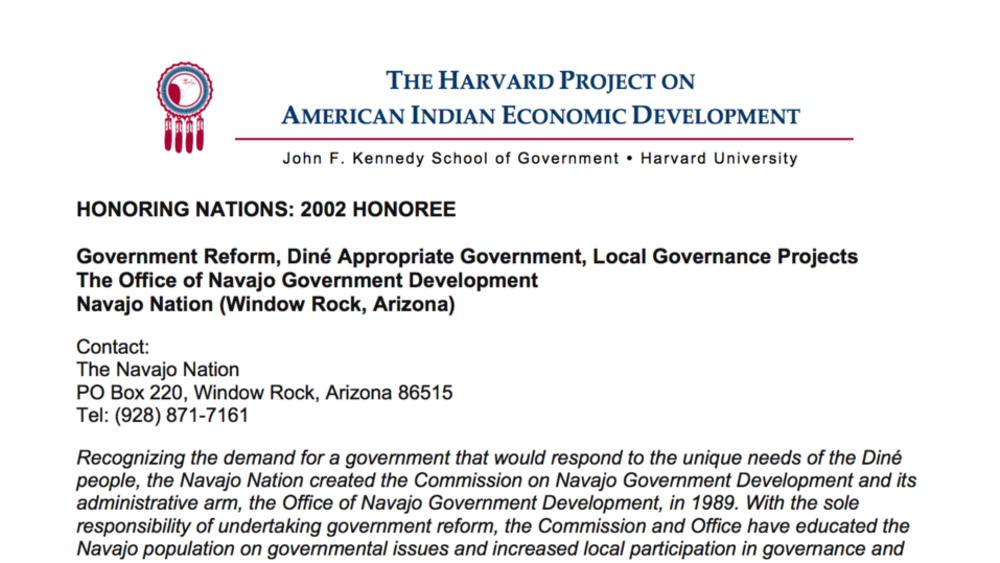
Diné (Navajo) Local Governance Projects
Formed in 1989 by the Navajo Nation Council, the Office of Navajo Government Development works with the Diné people and their elected leaders to conduct government reform, foster the incorporation of Navajo culture and tradition into the Navajo Nation Code, and facilitate the transference of…
Pagination
- First page
- …
- 2
- 3
- 4
- …
- Last page
